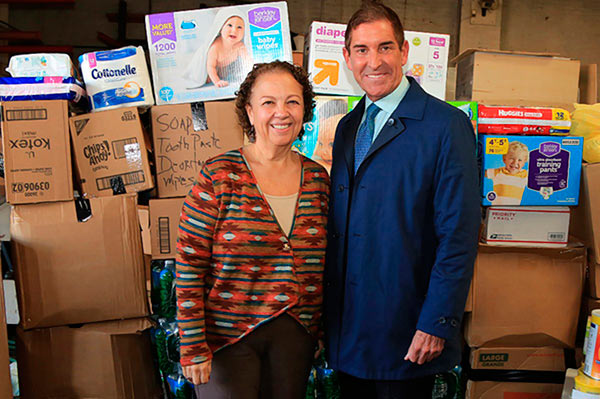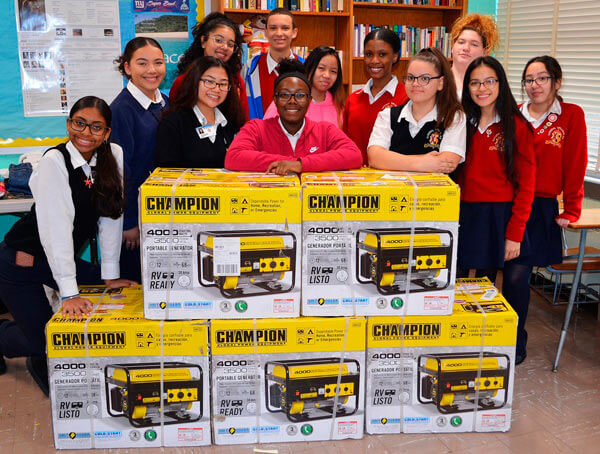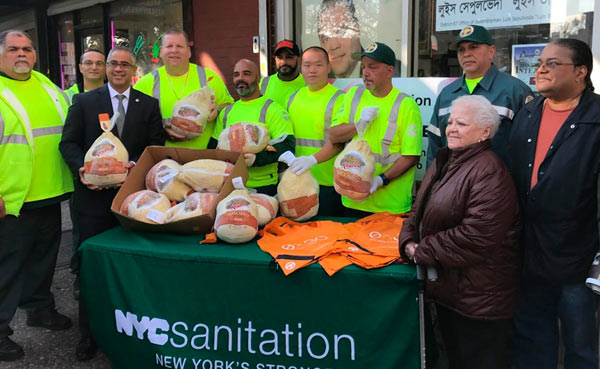The U.S. House’s passage of the Puerto Rico Status Act last week is of particular relevance in the Bronx, which serves as a second home to many generations of islanders.
Rep. Ritchie Torres, who is Puerto Rican and voted in favor of the legislation, told the Bronx Times on Thursday that there has always been a relationship between the borough and the Caribbean territory.
“The Bronx has long been the central home to the Puerto Rican diaspora, and so the Bronx has a vested interest in … the success of the island,” he said Thursday.
WATCH: The Puerto Rico Status Act would restore democracy on the island.
Who else thinks Puerto Ricans should have equal rights? pic.twitter.com/jYq6T582Yv
— Ritchie Torres (@RitchieTorres) December 15, 2022
The Puerto Rico Status Act, which was passed in the House on Dec. 15, gives voters on the island the freedom to choose their own destiny: independence, statehood or free association — a subcategory of independence that would maintain a permanent union with the mainland U.S.
According to data from the Census Bureau, just over 56% of Bronx residents identify as Hispanic or Latino. And for nearly the past 100 years, the borough has received many transplants from Puerto Rico, who represent almost one-fifth of the Bronx’s population.
And as it stands now, the relationship between Puerto Rico and the mainland U.S. is somewhat complicated.
The island has been an “unincorporated territory” since before the turn of the 20th century. Puerto Ricans are U.S. citizens and have had the power to elect their own governor, assembly and senate since 1952, but they can’t cast ballots for U.S. Congress or U.S. president.
Torres said the bill actually represents more than just the legislation; it’s emblematic of a formal recognition of the United States’ colonization of the island.
“For me, the need to end the second-class treatment of Puerto Rico is part of the larger struggle for equality,” he said. “The people on the island, who are American citizens, should enjoy an equal right to self determination.”
Some of the struggles Puerto Ricans regularly face have been natural disasters — most recently the María-esque storm Hurricane Fiona — that devastate the island’s electric grid, something that Torres said is a “symptom” of the territory’s “second-class status.”
“I see the colonization of Puerto Rico as the root cause of the never-ending cycle of crises that have taken hold on the island,” the congressmember said. “These crises cannot be viewed in a vacuum.”
And although the question of whether or not the relationship between the island and the U.S. should change varies among Puerto Ricans, Torres said the bill still sets a precedent.
“The Puerto Rican Status Act represents a breakthrough because for the first time, all the Puerto Rican members have come together and agreed on a framework for ending the second-class status of Puerto Rico,” he said.
Torres said getting the chance to cast his vote for the bill meant a lot.
“It was deeply gratifying for me because it represents a new way forward for the island,” he said. “The status quo is failing the people of Puerto Rico miserably.”
U.S. Rep. Alexandria Ocasio-Cortez also voted in favor of the act last week. In a video from the House floor, the congressmember praised the bill as a “historic” and “unprecedented.” U.S. Rep. Adriano Espaillat also voted in favor.
For the first time in our nation’s history, the U.S. recognized its role as a colonizing force. The Puerto Rico Status Act lays out a process for the Island to decide its own future. It doesn’t favor statehood, independence, or free association. It allows Puerto Ricans to choose. pic.twitter.com/fSgZymcpxU
— Rep. Alexandria Ocasio-Cortez (@RepAOC) December 15, 2022
Bronx City Councilmember Marjorie Velázquez, a Puerto Rican and the first woman of color to represent the 13th District in the Bronx, said in a statement the bill is a “crucial first step” in giving the republic an opportunity to determine its fate.
“Depending on the status voted on, that is when we will dive deep into what that status will mean for our people (in the Bronx),” she said. “Those who were born in Puerto Rico, frequently visit the island or have family still living on the island are at the top of mind, and I will be working with our federal partners to ensure their needs and concerns are addressed.”
The Puerto Rico Status Act must now pass in the U.S. Senate to become law.
Reach Camille Botello at cbotello@schnepsmedia.com. For more coverage, follow us on Twitter, Facebook and Instagram @bronxtimes





















